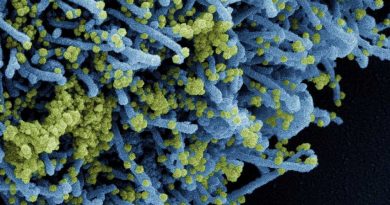The invisible sign you could be lacking vitamin D
Vitamin D is incredibly important for the body for a number of reasons.
It plays an essential role in the regulation of calcium, which is important for healthy bones.
It’s also important for the immune system, helps keep the muscles healthy and can reduce the risk of diabetes.
Vitamin D can’t be created by the body, and has to be taken in from sunshine or through diet.

- Vitamin B12 deficiency: What is it and what are the symptoms?
This is why it’s important to know the signs and symptoms of vitamin D deficiency .
As Autumn arrives there is one particular invisible sign Brits should be wary of, because it can easily be blamed on something else.
Because the days will start to get darker, it’s easy to blame feeling low on the weather. But there could be more to it than than.
Around 80-90% of Brits’ vitamin D stores are provided by the sun, so when it gets darker signs of Seasonal Affective Disorder (SAD) can begin to appear.
- Vitamin B12 deficiency: Foods which should be in your diet to avoid worrying symptoms
Research has suggested vitamin D may help to modulate levels of neurotransmitters such as serotonin (the happy hormone) within the brain.
These play a pivotal role in the development of depression.
Studies have also found low levels of vitamin D are common among those with depression.
Keeley Berry, Nutrional Expert and New Product Development Executive at BetterYou, said: “If you find yourself suffering from low mood for prolonged periods of time or suspect that you may have a vitamin D deficiency, the first step would be to test your levels.
“You can do this by either visiting your GP or by using a quick and easy at-home testing service.
- Vitamin D deficiency: Lack of vitamin could raise risk of developing this disorder
“Blood tests are the most accurate way to understand a person’s vitamin D status and allows for tailored supplementation recommendations based upon on the results.
“As our bodies react to each vitamin and mineral differently, each person will have a unique response to taking a supplement and the amount of time before you start to see a difference will vary.
“Those with a deficiency can begin to feel a difference after just two weeks of supplementation, however significant benefits are experienced after one month.
“I would recommend that those with inadequate levels of vitamin D, for example those deemed deficient or insufficient, re-test their levels after 12 weeks of supplementation to ensure levels have increased appropriately.”
Source: Read Full Article



